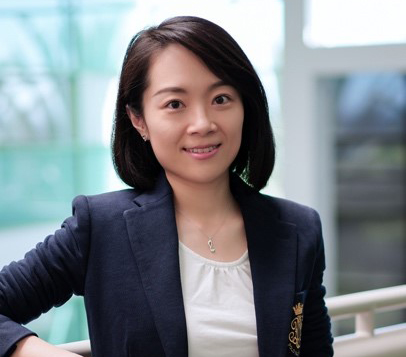
JULY 14, 2020 • By Jessica MacInnis
Professor Shurui Zhou is one of four new faculty members joining The Edward S. Rogers Sr. Department of Electrical & Computer Engineering (ECE) this summer. Professor Zhou received her PhD in the Institute for Software Research at Carnegie Mellon University’s School of Computer Science. Her research focuses on helping distributed and interdisciplinary software teams to collaborate more efficiently, especially in the context of modern open-source collaboration forms, fork-based development and interdisciplinary teams when building AI-enabled systems or scientific software. We sat down with Professor Zhou to ask her about her research, what drew her to ECE at U of T and how her research led to a collection of utensils.
Tell us about your research.
Software development requires groups of people to work collaboratively. Nowadays, these software teams have become increasingly distributed: there are people working from home and even teams spread across continents, in different time zones. In open source communities, there are people who might not even know each other, but are nevertheless building software together.
In addition, the development process requires stakeholders with different backgrounds to collaborate together, from requirement analysis to software design to software delivery. The collaboration efficiency has a direct impact on the quality of the outcomes.
The vision of my research is to help distributed and interdisciplinary software teams to collaborate more efficiently. I combine advances in tooling and software engineering principles with insights from other disciplines, such as organizational theory and social computing.
I mix a wide range of research methods to understand the problem better. Throughout my work, I often start with studying a problem empirically, such as conducting surveys and interviews with stakeholders, before applying theoretical tools from other fields. I use all of that knowledge to design new tools or software engineering practices, and to evaluate the solutions empirically and pragmatically.
What excites you about this research?
What excites me is the practical strategies that can come out of this work. I love helping software teams in industry resolve real problems in a systematic way.
Any collaborations or interdisciplinary work you are most looking forward to pursuing?
I am excited to collaborate with many colleagues at U of T, both within and outside of the ECE department. For instance, I am interested in helping AI experts work effectively with software engineers. I would like to collaborate with Professor Nicolas Papernot to understand the challenges of building AI-based software systems, and with Professor Alison Olechowski on building bridges between software and hardware.
Any advice for the incoming ECE class?
I would encourage students to strengthen their interdisciplinary thinking, which is becoming a highly necessary and frequently sought skill in the world. And, have fun!
What do you hope to accomplish, as an educator and as a researcher, in the next few years?
I would like to build a successful software engineering research group and attract students to do high-impact research.
I would also like to help the next generation of engineering students become software development and educational leaders who will solve the problems associated with building large-scale and critical software systems.
Tell us a fun fact about yourself.
I collect forks as I have spent six years of my PhD studying how to help people use forks to build better software systems!
For more information:
Jessica MacInnis
External Relations Manager
The Edward S. Rogers Sr. Department of Electrical & Computer Engineering
416-978-7997 | jessica.macinnis@utoronto.ca